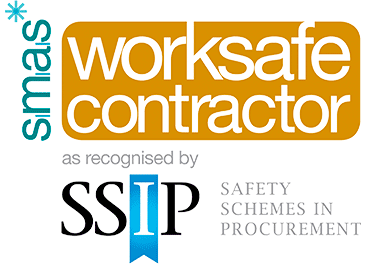News
Commencement of Development: What needs to happen to keep a permission alive?
10 December 2021
This article provides practical advice for anyone with a permission about to expire, or those who need further advice as to whether they still have a ‘live’ permission.

Development projects don’t always progress as quickly as we might like, and we are often asked to advise on what steps are required to keep a planning permission ‘alive’. Clients are also keen to check whether, following the expiry of a permission, a development can be considered as having materially commenced – making them exempt from enforcement action. This article provides practical advice for anyone with a permission about to expire, or those who need further advice as to whether they still have a ‘live’ permission.
Development must be commenced within the timeframe specified on the permission. For a full permission this is normally 3 years (unless a different timeframe is negotiated), or in the case of an outline permission, reserved matters must be submitted within 3 years and development commenced within 2 years of the final approval of reserved matters.
In the past (most recently for applications expiring between August and December 2020) mechanisms have been bought into place to allow time extensions for applications to be implemented. However, for now, to avoid a resubmission, permission should be lawfully implemented if the permission is to remain ‘live’.
Pre-Commencement Conditions
The first question that an applicant should ask is ‘have pre-commencement conditions been discharged?’ The question of whether a condition goes to the ‘heart of the permission’ (condition precedent) would be the subject of a different article but, for the moment, we will focus on conditions that would need to be addressed before work could start on the site. A condition requiring archaeological investigations to take place before any groundworks commence is just one example. Each case is different, but a Section 96a application can be used to vary wording to remove or vary the ‘pre-commencement’ wording (with agreement from the Local Planning Authority) if there is any concern that certain conditions could not be discharged.
What are material operations?
We would recommend that advice be sought on a case-by-case basis, but digging a trench for foundations, laying of sewers and services, and laying out an access road are a few examples. Demolition also falls into this category when this is included as part of the planning permission.
Payment of CIL and S106
One pitfall is failure to pay CIL in the requisite time or comply with Section 106 requirements that come into play upon commencement of development.
Practical steps
The most important tip we can give is to keep a paper trail. Make sure you have copies of any paperwork – discharge of condition notice, building control notice, invoices from contractors, evidence of payments and dated photographs. If you are near to the date of a permission expiry and have useful pieces of evidence that work has started, we would advise sending them to the Local Planning Authority. A friendly officer would normally respond and confirm that works have commenced – if not, at least you will have the evidence down the line that the various actions were completed in time.
Certificate of Lawfulness to Confirm Lawfulness of Development
A Certificate of Lawfulness provides a practical way of confirming that the permission has been implemented and prevent future enforcement action.
Resubmission
The resubmission of an application can still be a useful alternative for an applicant not wishing to be put under pressure, either for when the permission has not yet expired or for when the policy position hasn’t changed.
For anyone seeking further advice or needing help in applying for a Certificate of Lawfulness, please contact one of the Planning Potential team who will be able to help further.







